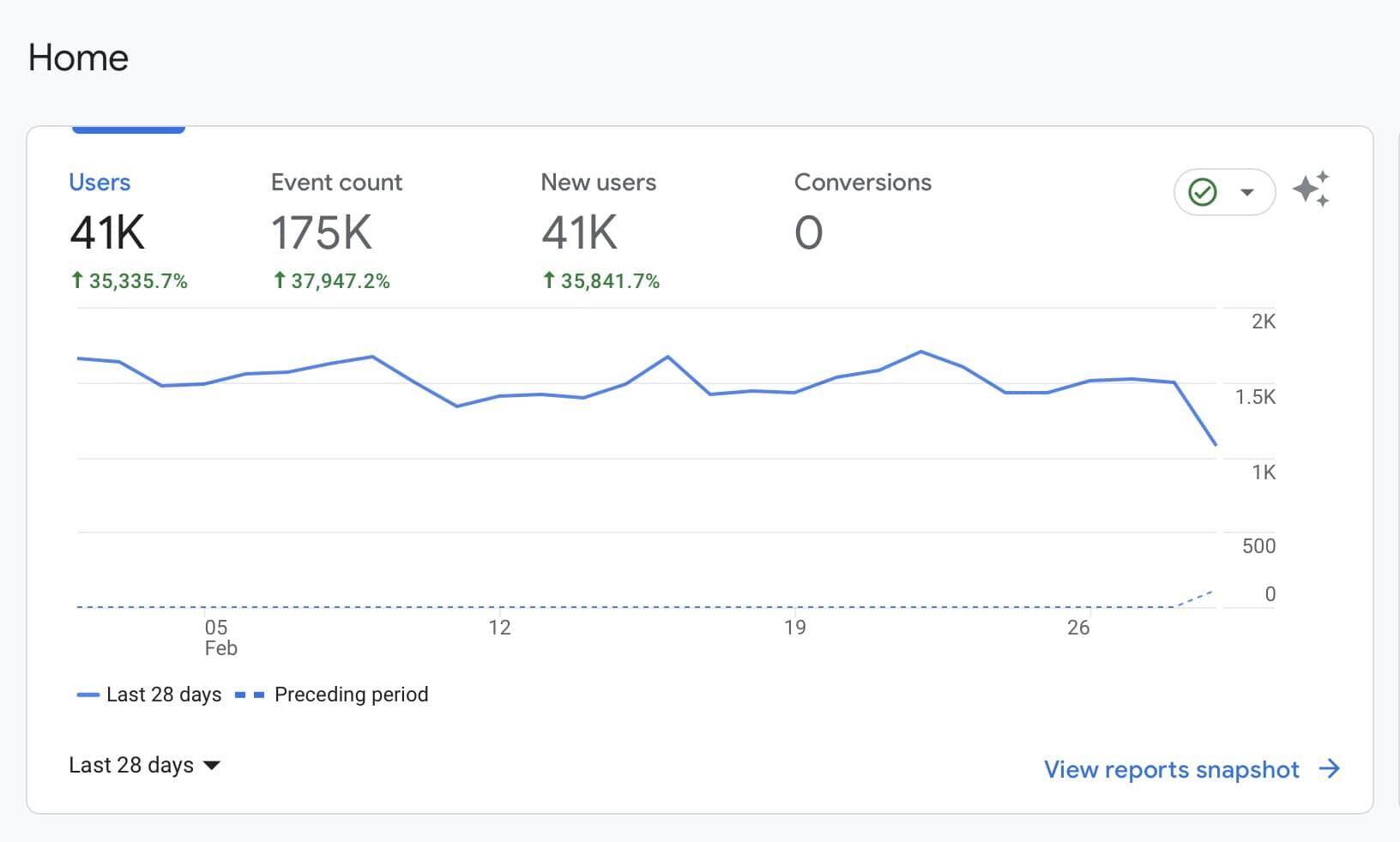In the bustling digital landscape where details flows like a relentless river, understanding the metrics that gauge online engagement is vital for anyone navigating this terrain.One such metric, often obscured by a haze of jargon and statistics, is the concept of unique visitors. As the bedrock of web analytics, unique visitors provide a critical lens through which marketers, businesses, and content creators can decipher the pulse of their audience. But what does it truly mean too be “unique”? This article embarks on a journey to unravel the nuances behind unique visitors, exploring their significance, the implications for digital strategies, and how they can unlock invaluable insights into user behavior. Join us as we delve into the power of this essential metric and discover how it can pave the way for informed decision-making in the digital age.
Table of Contents
- Understanding Unique Visitors and Their Impact on Website Performance
- Analyzing Visitor Engagement Metrics for Deeper Insights
- Strategies to Enhance Unique Visitor Acquisition and Retention
- Leveraging Unique Visitor Data for Informed Business Decisions
- Q&A
- Wrapping Up

Understanding Unique Visitors and Their Impact on Website Performance
Understanding the concept of unique visitors is crucial for any website aiming to gauge it’s performance and reach. Unique visitors refer to individual users who visit a site over a specified period, regardless of how many times they return. Analyzing this metric provides insights into the site’s overall popularity and the effectiveness of its marketing strategies. By focusing on unique visitors, webmasters can better allocate resources and tailor content based on actual user behavior. This metric is particularly valuable as it highlights engagement levels and can indicate whether content is resonating with its intended audience.
Moreover, tracking unique visitors allows businesses to harness the power of data-driven decision-making. A rise in unique visitors often correlates with improved brand visibility and an increased likelihood of conversions. To illustrate this point, consider the following benefits of monitoring unique visitors:
- Audience Insights: Determine the demographics and interests of your site visitors.
- Content Effectiveness: Identify which content drives the most engagement.
- Marketing Strategy Improvement: Tailor campaigns based on traffic trends and user behavior.
To further emphasize the importance of unique visitors, here’s a brief comparison of websites before and after implementing targeted marketing strategies:
| time Period | Unique Visitors | engagement Rate |
|---|---|---|
| Before Strategy | 1,200 | 35% |
| After strategy | 2,500 | 55% |
This table underscores the potential positive impact targeted efforts can have on unique visitor numbers, ultimately driving better performance and growth for any online presence.
Analyzing Visitor Engagement Metrics for Deeper Insights
Understanding visitor engagement metrics is crucial for uncovering the layers of user interaction and behavior on your website. By diving deep into these metrics, you can identify which content resonates most with your audience, leading to more tailored and effective strategies. Key metrics to consider include page views, bounce rate, and average session duration. Each of these elements tells a different story about how visitors engage with your site:
- Page Views: The total number of pages a user views can indicate content popularity.
- Bounce rate: A high bounce rate may suggest that the landing pages aren’t meeting user expectations.
- Average Session Duration: Longer sessions typically reflect higher engagement and user interest.
Additionally,utilizing a segmented approach enables you to derive nuanced insights. By breaking down your visitor data, you can analyze different segments, such as new vs. returning visitors, or visitors from various traffic sources. This can illuminate how different audience segments interact with your content. here’s a simple framework for effective analysis:
| visitor Segment | Engagement Score | Conversion Rate |
|---|---|---|
| New visitors | 6.5/10 | 2.1% |
| Returning Visitors | 8.8/10 | 5.4% |
| Mobile Visitors | 7.2/10 | 3.3% |
With this structured analysis,you can better understand where to focus improvement efforts and enhance overall engagement through targeted content strategies. This approach not onyl builds a deeper understanding of your audience but also paves the way for optimizing user journeys across your platform.
Strategies to Enhance Unique Visitor Acquisition and Retention
To effectively capture and hold the attention of unique visitors, businesses should leverage a multi-faceted approach. developing high-quality content that resonates with your target audience is paramount; consider crafting blog posts, videos, and infographics that address their needs and interests. Additionally, implementing personalized marketing strategies can foster a sense of connection; utilizing data analytics allows you to deliver tailored messages and product recommendations, thus enhancing the overall user experience. Don’t underestimate the power of social media platforms — engaging with users through interactive posts, polls, and live sessions can substantially boost visibility and encourage shares, amplifying your reach.
Another crucial aspect of acquisition and retention lies in creating an inviting and seamless user experience on your website.Optimizing site speed and mobile responsiveness is non-negotiable, as delays and poor navigation can lead to high bounce rates. Furthermore, by implementing strategic email campaigns, you can effectively re-engage past visitors; sending personalized follow-ups or exclusive offers can entice them to return. Consider this simple table to visualize the essential tactics:
| Strategy | Description |
|---|---|
| Quality Content | Create engaging, relevant materials to attract and retain visitors. |
| Personalization | Use analytics to tailor messages and recommendations. |
| Social Engagement | Utilize social media to interact with users and build community. |
| Site Optimization | Enhance speed and mobile usability for a better user experience. |
| Email Campaigns | send personalized offers to re-engage visitors. |
Leveraging unique Visitor Data for Informed Business Decisions
In the realm of digital marketing,understanding how unique visitor data influences business strategy can be the difference between stagnation and growth. By analyzing unique visitor metrics, businesses gain insights into customer behavior that transcend surface-level statistics. This data enables organizations to identify patterns in visitor engagement, allowing for optimized marketing strategies tailored specifically to their audience’s preferences.Key aspects to consider include:
- user Behavior: Tracking the paths unique visitors take can reveal which content captivates them most.
- Demographics and Segmentation: understanding the demographics of unique visitors helps tailor campaigns for specific audience segments.
- Conversion Rates: Analyzing how unique visitors convert compared to returning visitors can inform sales tactics and discount strategies.
- Time on Site: Measuring how long unique visitors stay can indicate content effectiveness and engagement levels.
Additionally, utilizing advanced analytics tools to visualize this data can foster informed decision-making across various departments. By leveraging unique visitor metrics in a strategic framework, companies can create actionable insights that drive profitability and enhance customer satisfaction. As a notable example, consider the following table which presents a snapshot of unique visitors over a quarter and their associated engagement rates:
| month | Unique Visitors | Engagement Rate (%) |
|---|---|---|
| January | 5,000 | 65% |
| February | 7,200 | 72% |
| March | 6,800 | 68% |
This data not only reflects engagement trends but also allows businesses to adjust their strategies in real-time, making data-driven decisions that cater to the evolving preferences of their audience.
Q&A
Q&A: Unlocking Insights – the Power of Unique Visitors Explained
Q1: What are unique visitors, and why are they important for websites? A1: Unique visitors represent the number of distinct individuals who visit a website during a specific time period. this metric is crucial because it helps website owners understand their audience size and traffic patterns. Unlike page views, which can be inflated by users refreshing a page or visiting multiple times, unique visitors provide a clearer picture of how many actual users are engaging with content. This insight is foundational for assessing a site’s reach and optimizing marketing strategies.
Q2: How is the count of unique visitors calculated? A2: The count of unique visitors is typically tracked using cookies or IP addresses. When a user visits a site, a cookie is placed on their device, allowing the analytics software to identify them on subsequent visits within a predetermined timeframe (usually 30 days). If a visitor returns after this period, they would be counted as a new unique visitor. This helps to maintain an accurate tally that reflects actual user engagement.
Q3: What is the difference between unique visitors and total visits? A3: While unique visitors measure the number of distinct users accessing a site, total visits (or sessions) represent the overall interactions within a given time frame, including multiple visits by the same user. For example, if one user visits a website three times in one day, they contribute one unique visitor but three total visits. This differentiation is vital for evaluating user behavior, understanding engagement levels, and identifying content that resonates with the audience.
Q4: How can tracking unique visitors inform marketing strategies? A4: Understanding the unique visitors metric allows businesses to fine-tune their marketing efforts. By assessing the number of unique visitors over time, organizations can identify trends, evaluate the effectiveness of campaigns, and adapt strategies to attract new customers. For example, if a social media campaign significantly increases unique visitors, it may prompt further investment in similar outreach efforts. Conversely, a decline could lead to a reassessment of messaging or target demographics.
Q5: are there any limitations to relying solely on unique visitor metrics? A5: yes, while unique visitors provide valuable insights, relying on this metric alone can be misleading. It does not account for user engagement quality or conversion rates. A site may attract many unique visitors but fail to convert them into customers. Additionally, factors like bot traffic or fluctuations in user behavior can distort unique visitor counts.To gain a well-rounded view of website performance, it’s important to analyze other metrics such as bounce rate, session duration, and conversion rates alongside unique visitors.
Q6: How can businesses improve their unique visitor numbers? A6: To enhance unique visitor counts, businesses can deploy a variety of strategies, including optimizing their website for search engines (SEO), creating high-quality and relevant content, leveraging social media for wider reach, and utilizing targeted advertising campaigns. Engaging with users through interactive content or community building can also foster repeat visits from new users, effectively boosting unique visitor counts. ultimately, creating a welcoming and valuable online experience will encourage more individuals to explore what a website has to offer.
Q7: In what ways can unique visitor data shape future website growth? A7: Unique visitor data can significantly influence future website development by highlighting user preferences and behaviors. By analyzing this data, developers can identify which sections of a site draw more visitors and which areas may need improvement. With insights into audience demographics, interests, and traffic sources, businesses can create tailored user experiences, optimize site navigation, and enhance content offerings to better meet the needs and expectations of their visitors, thereby fostering growth and retention.
Wrapping Up
understanding the nuances of unique visitors is not just a matter of counting numbers; it’s about uncovering the stories that lie within the data. As we navigate the digital landscape, the insights gleaned from unique visitors serve as a compass, guiding marketers, businesses, and content creators in their quest to connect authentically with their audience. By appreciating the significance of each individual who engages with your content,you can tailor your strategies to foster deeper relationships and drive meaningful interactions. as we continue to explore the evolving world of online engagement, let us embrace the power of unique visitors not merely as metrics, but as vital indicators of our impact and outreach. In this interconnected realm, every visit has the potential to transform, inspire, and inform. So, keep unlocking those insights, and remember: the numbers may be unique, but the possibilities they present are limitless.









